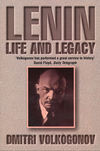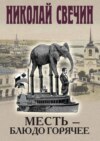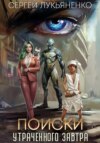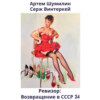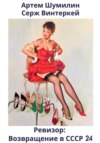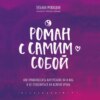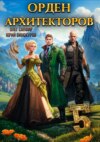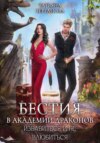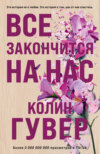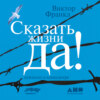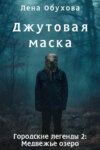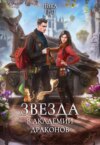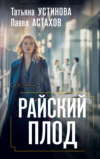Читать книгу: «Lenin: A biography», страница 3
It would not be worth dwelling on the Ulyanov family tree had the official picture not been so obscured by a mass of unnecessary trivia and painted in the colours of ‘class consciousness’, and had so much not been passed over in silence, distorted and blatantly falsified. A brief account, however, may suffice to show that Lenin’s background reflected the face of the entire empire. He had a general idea about his origins, but, although he was Russian by culture and language, his country was not his highest value – not that he particularly felt himself to be a German, a Swede, a Jew or a Kalmyk. He may have described himself as a Russian when filling in forms, but in his outlook he was an internationalist and cosmopolitan, for whom the revolution, power and the Party were to be immeasurably more precious than Russia itself. It is only important to clarify this matter because the Bolsheviks found it necessary to suppress evidence of the perfectly natural mixture of nationalities in Russia in order to present their leader as ethnically ‘pure’.
Lenin’s antecedents were Russian, Kalmyk, Jewish, German and Swedish, and possibly others, symbolizing Russian history, as it were: a Slavic beginning, Asiatic expansion, a Jewish accretion to the national intellect, and German or West European culture. Genetic selection in history is spontaneous and mysterious. But here a digression is called for. When Lenin died, the Central Committee Secretariat commissioned his elder sister, Anna Yelizarova, to collect all the materials she could find and to write a definitive account of the Ulyanovs. Anna, who was one of the founders of the Lenin Institute, set to work, and soon discovered what I also found: namely, that there was a mass of material in the St Petersburg police department archives about her mother’s descent, as well as other materials which M.S. Olminsky, chairman of the Commission for the Study of the History of the Party (Istpart), helped her locate. Some eight years later she had still not divulged her discoveries to anyone. But in 1932, two years before she died, she suddenly revealed her findings to Stalin, and said she wanted to publish them. She knew that her great-grandfather, Moishe Itskovich Blank, had been born in Starokonstantinov, that his two sons, Abel and Srul, had converted to Christianity and changed their names to Dmitri and Alexander, and that in 1820 both had been admitted into the St Petersburg Medical-Surgical Academy, from which they graduated in 1824.15
In her letter to Stalin, Anna wrote: ‘It’s probably no secret for you that the research on our grandfather shows that he came from a poor Jewish family, that he was, as his baptismal certificate says, the son of “Zhitomir meshchanin Moishe Blank”.’ She went on to suggest that ‘this fact could serve to help combat anti-semitism’. Paradoxically for a Marxist who believed in the primacy of environmental over inherited factors, she also asserted the dubious proposition that Lenin’s Jewish origins ‘are further confirmation of the exceptional abilities of the Semitic tribe, [confirmation] always shared by Ilyich [Lenin] … Ilyich always valued the Jews highly.’16 Anna’s claim explains, for instance, why Lenin frequently recommended giving foreigners, especially Jews, intellectually demanding tasks, and leaving the elementary work to the ‘Russian fools’.17 According to General A.A. Yepishev, former chief of the army’s main political directorate, who heard it from Stalin’s personal assistant Poskrebyshev, Anna’s sister Maria handed the letter to Stalin and waited while he read it carefully. His response was categorical and fierce: ‘Absolutely not one word about this letter!’ But a little over a year later, Anna approached Stalin again, asserting that ‘in the Lenin Institute, as well as in the Institute of the Brain … they have long recognized the great gifts of this nation and the extremely beneficial effects of its blood on the progeny of mixed marriages. Ilyich himself rated their revolutionary qualities highly, their “tenacity” in the struggle, as he put it, contrasting it with the more sluggish and unstable character of the Russians. He often pointed out that the great [attributes of] organization and the strength of the revolutionary bodies in the south and west [of Russia] arose precisely from the fact that 50 per cent of their members were of that nationality.’18 But Stalin, the Russified Georgian, could not allow it to be known that Lenin had Jewish roots, and his strict prohibition remained firmly in place.
In November 1937, the writer Marietta Shaginyan published an article in the Moscow journal Novy mir as the first part of her research into the genealogy of the Ulyanovs. Somehow the article went unnoticed, but in 1938 she published her work as a novel based on fact, entitled The Ulyanov Family, and dealing with the origins of the family up to the birth of Lenin. The reaction was harsh. The book was first read by a small group of senior members of the Soviet Writers’ Union, who condemned it as an ‘ideologically dangerous’ work of’petty bourgeois’ character. A month later, on 9 August 1938, the presidium of the Union convened and passed a resolution which declared that ‘in applying pseudo-scientific research methods to Lenin’s so-called “family tree”, M.S. Shaginyan gives a distorted representation of the national character of Lenin, the greatest proletarian revolutionary, a genius of mankind, who was raised up by the Russian people and who is its national pride’.19 Those responsible for writing, publishing and distributing the book were dealt with severely. In 1972, all documents on Lenin’s origins, 284 pages in all, were transferred from the various archives which held them to the Central Committee special collections, where they remained.
The German branch of Lenin’s family tree is also interesting. According to Leonhard Haas, the Swiss historian and former director of the Swiss Federal Archives, the Groschopfs, all of whom were wealthy bourgeois, came from northern Germany and could boast several notable personalities throughout German history: Lenin’s great-grandfather, J.G. Groschopf, was a representative of Schade, a German trading company. Other ancestors and descendants of Lenin’s forebears include I. Hoeffer, a well-known theologian; Ernst Curtius, the tutor of Kaiser Friedrich III; and Field Marshal Walter Model, who earned the title of ‘the Führer’s Fireman’ as an audacious commander in the Wehrmacht’s assault on Moscow in 1941.20 The Swedish branch, who were mostly artisans – wigmakers, hatters, tailors – issued from a rich jeweller, one K.F. Estedt, who lived in Uppsala and supplied the court of King Gustavus IV in the late eighteenth century.
Having settled in Simbirsk in 1869, the Ulyanovs lived the life of most civil service families or bourgeoisie of the period. Like most provincial towns at that time, social life in Simbirsk was not especially stimulating. Trade and commerce were the dominant activities, while various educational and cultural establishments provided spiritual and intellectual nourishment. Both Ulyanov parents, however, had high aspirations for their children, and their efforts left their mark. Vladimir, who was born in April 1870, had two brothers and three sisters: Anna (born 1864), Alexander (1866), Olga (1871), Dmitri (1874) and Maria (1878). Another brother, Nikolai, born in 1873, died in infancy, and another sister, also called Olga, died at birth in 1868. (The second Olga died at the age of twenty.) Lenin’s mother did not attend university, but was nevertheless well educated, thanks to the efforts of her aunt, Yekaterina Groschopf. Much has been written about the education of Lenin and his siblings, some of it accurate, but also much that is sugar-coated and exaggerated. Some authors have almost suggested that Lenin’s genius emerged while he was still in nappies. I do not intend to recount the domestic life of the family in detail, but to pick out some salient features that are sometimes missed.
The young Vladimir – invariably known in the family as Volodya – was a gifted and capable child, qualities enhanced by the comfortable, supportive atmosphere of the home, thanks to his father’s successful career. The family lived in a good house, the three eldest children each had a room of their own, there was a cook, a nanny, and servants to deal with the domestic chores. Lenin himself recalled that the family lacked for nothing. An outstanding teacher and advocate of state education, his father rose to become director of the province’s schools in a few years. He was well regarded by the authorities and was awarded several decorations, including the Order of Stanislav, First Class, finally achieving the rank of State Counsellor, corresponding on the Table of Ranks to the title of general. Having become a hereditary noble through his service career, he thus conferred the same privileged status on his family. The Ulyanovs’ life was stable and secure – until, that is, Ilya Nikolaevich died in 1886, and, out of the blue, the eldest son, Alexander, was arrested and hanged in the following year.
Volodya was always top of his class, but he showed none of the ‘revolutionary free-thinking’ described by many of his biographers. It is surely one of the most striking ironies of modern Russian history that the headmaster of his high school should have been Fedor Mikhailovich Kerensky, father of the future ‘hero’ of the February revolution of 1917 who was to be the last obstacle to the Bolshevik seizure of power in October. Kerensky père often publicly expressed his admiration for the ability and diligence shown by Volodya Ulyanov. Volodya, meanwhile, was acquiring a strong intellectual foundation as a result of family support and encouragement from his teachers. He was also acquiring deep self-confidence and a sense of superiority over his peers. He was the family favourite, accustomed to being the centre of attention. Not that he was vain, but neither did he conceal his moral ‘right’ to the primacy he believed was his, and even at that early stage he seems to have shown intolerance of other people’s views. One of Alexander’s school friends, V.V. Vodovozov, recalled that he realised, after visiting the Ulyanovs, that it would he impossible to become a close friend of Vladimir, whom he thought rude in argument, excessively self-confident and self-important, and puffed up by being thought a genius within the family and an infallible authority outside it.21
Vladimir and Alexander
Lenin’s intellectual and political self-definition still lay in the future, but one of the most decisive landmarks along the way was the fate of his brother Alexander. The age difference of four years between Alexander and Volodya meant that, as children, the younger boy very much looked up to his elder as a superior being, a hero figure, a rôle which Alexander evidently played with relish. Alexander, moreover, as the eldest child, and perhaps the brightest, also set a pattern of behaviour and activity at home that was bound to encourage his juniors to do their best intellectually: in his teens he edited a family weekly to which everyone was expected to contribute.22 The sudden and traumatic removal of such an admired and loved member of the family was bound to have a powerful effect on the lives of the others.
The execution of Alexander was a tragedy that struck at the entire family. In the young Lenin, it sparked a surge of rebellion, although it was not as literal and direct as post-revolutionary myth would have us believe. It was customary among Soviet historians to quote the words he is reported to have uttered to his sister Maria, then aged all of nine, when news of Alexander’s execution reached the family: ‘No, we will not go that way. That’s not the way.’23 According to the official accounts, the fate of Lenin’s brother ‘reinforced his revolutionary views’.24 He may well have spoken those words to his little sister, but the fact is that at this age he held no revolutionary views whatsoever, and he could not have distinguished one revolutionary ‘way’ from another.
The death of his father, undoubtedly a major tragedy and economic disaster for the family, has also been depicted in official Soviet literature as an event of ideological significance in the life of the young Lenin. Most writers followed Nadezhda Krupskaya’s clumsy assertion of 1938 that Lenin’s father’s views exerted a revolutionary influence on his children: ‘As a teacher, Ilya Nikolaevich read Dobrolyubov with particular interest. Dobrolyubov conquered the honest heart of Ilya Nikolaevich and defined his work as schools director and as the mentor of his son, Lenin, and his other children, all of whom became revolutionaries.’25 This is far from the truth.
A well educated, cultivated man of his time, Ilya Ulyanov was also deeply pious and rather conservative. His eldest daughter, Anna, recalled that he ‘had never been a revolutionary and wanted to protect the young from that way of thinking. He much admired Alexander II whose reign, especially its first phase, was for him “a bright period”.’26 The 1860s had been a period of ‘great reforms’, when the serfs had been emancipated, a measure of local self-government introduced in the provinces, the judiciary allowed to become a free professional corporation, universities and schools expanded and given greater autonomy: in a word, Russia had been launched on a path of reform in the general direction, if not of liberal democracy, then at least of social modernization. The climate of reform, combined with the government’s fear of going too far, too fast, also gave rise to a revolutionary movement, whose members – mainly students – felt that nothing would change fundamentally for the better unless the whole political structure was demolished, or at least the tsar was removed. To support the reformist trend was to be progressive, to oppose it reactionary, and to dismiss both sides of the argument revolutionary. Ilya Ulyanov definitely belonged to the first category.
Ilya’s youngest daughter, Maria, also attested to his civic loyalty: ‘[He] was not a revolutionary, and we don’t know enough to say what his attitudes were to the revolutionary activities of the young.’27 It would, however, be safe to assume that, as a teacher with a profound sense of vocation, he did much to create a democratic, humane atmosphere in the household. The harmony between husband and wife, their concern for the children, the equality between the siblings, the culture of hard work and diligence, all helped to form an extremely favourable soil for the seeds of free thinking, should they fall there. Ilya Ulyanov, in other words, created the preconditions for his children, above all Alexander and Vladimir, to be receptive to radical ideas. Ilya Ulyanov did not make Lenin a revolutionary; he and his wife merely cultivated in their children the ability to change, to feel the need for change. When Lenin’s father died in January 1886, Vladimir was not yet sixteen.
Even before she had buried her husband, Maria Ulyanov applied for a pension for herself and her children, and a little later asked the Kazan schools district for a special grant. From now on she would live only on her pension and the rent from Kokushkino, of which she was a joint owner. In September 1886 the Simbirsk district court confirmed that Ilya’s estate should pass to Maria and her children.
In April 1887, when Lenin reached the age of seventeen, he registered for military service,28 but as he was now the eldest son and potential breadwinner, he was exempted.29 He was not in fact the family breadwinner. On the contrary, thanks to his mother’s pension, and with her strong encouragement, he pursued his studies.
If it was the family culture that created the preconditions for Lenin to become radically minded, it was the fate of his brother Alexander that provided the catalyst. It is doubtful if Alexander’s tragic end changed Lenin’s revolutionary direction, since there was none to change. Vladimir’s supposed words to his sister on hearing of his brother’s execution also raise a question. ‘No, we will not go that way.’ Why ‘we’? He belonged to no secret society or circle. Perhaps Maria misremembered his words after so many years, or perhaps the heavy weight of Soviet experience suggested the words to her mind. In any case, it is hard, in purely human terms, to believe that Vladimir’s response to the news of his brother’s death would prompt him to pronounce the slogan that would make him forever a ‘proper’ revolutionary.
Alexander was a gifted youth, as the gold medal he attained on graduating from high school indicated. At school he had shown an interest in zoology and acquired three European languages, and at St Petersburg University, which he entered in 1883, he quickly became one of the top students. A month before his father’s premature death he won the University gold medal for work on annelid worms. Nothing indicated that he had been seized by the forces of social protest.
In his first years at university, Alexander was indifferent, if not sceptical, towards the political circles, but he became more involved when friends introduced him to the writings of Marx, Engels and Plekhanov. For them, Marxism emphasized the need for violence to change the existing conditions. One of the more radical members of the group, P. Shevyrev, declared that only by the removal of tyrants could life be reorganized on just principles. At first Alexander, who was wrapped up in his scientific plans and discoveries, merely listened, but gradually he was won over by the apparent logic of his friends’ radicalism, and came to feel it was morally unacceptable to stand aside from ‘the ideas of progress and revolution’, as they put it.
While Alexander was at university his contacts with Vladimir were sporadic, limited to the occasional letter with greetings to all. And when he came home on vacation, there was no particular intimacy between them. They were a close-knit family, but the children tended to pair off, and Vladimir was closest to his sister Olga, though he deferred to Alexander’s intelligence. Anna, the eldest sister, recalled once talking with Alexander after their father had died, and asking him: ‘How do you like our Volodya?’ Her brother replied: ‘He’s obviously very gifted, but we don’t really get on.’ Anna was intrigued, but Alexander refused to explain.30 This may be the only hint in all the apologist literature that relations between the siblings might not have been entirely flawless.
The 1880s in Russia were a time of harsh reaction against the assassination in 1881 of the ‘tsar-liberator’, Alexander II. Students in particular were more closely watched and harassed by the police than ever before, and Alexander’s entry into a group of conspirators who were planning the assassination of Alexander III is commonly explained by the violent dispersal by the police of a student demonstration in memory of the radical thinker Dobrolyubov on 17 November 1886. The arrest and deportation to Siberia of several student friends confronted Alexander with the moral question of how to behave in such circumstances. According to Shevyrev’s view: ‘When the government takes our closest friends by the throat, it is especially immoral to refuse to struggle, and under the present circumstances real struggle with tsarism can only mean terrorism.’ Of this dilemma Nikolai Valentinov, an early Bolshevik who knew Lenin well during the time of his first period abroad, between 1900 and 1905, and a valuable historical source in himself, wrote: ‘Painfully sensitive to suggestions of immorality, Alexander, after agonizing hesitation, began to share these views, and once he did so, he became an advocate of systematic, frightening terrorism, capable of shaking the autocracy.’31
The group of conspirators under Shevyrev’s leadership grew. Their watch on the tsar’s route from the palace to St Isaac’s Cathedral began on 26 February 1887, but they were utterly inexperienced, and when on 1 March the police intercepted a letter from one of them, the entire group was arrested. The Ulyanov family was devastated, but placed their hope in the emperor’s clemency. Alexander’s mother rushed to St Petersburg and handed in a letter to Alexander III which said, among other things, that she would purge her son’s heart of its criminal schemes and resurrect the healthy human instincts he had always lived by, if only the tsar would show mercy.
The drama caught the attention of society, and received much publicity. Maria Ulyanova’s entreaties failed, however, not only because of the tsar’s intransigence, but because Alexander refused to ask for clemency. Those who found it possible to do so had their death sentences commuted to hard labour. The trial was very short, lasting only from 15 to 19 April. Five unrepentant comrades were sentenced to hang. Even when Alexander was saying goodbye to his mother there was still the chance of salvation, but he told her in a quiet, firm voice, ‘I cannot do it after everything I said in court. It would be insincere.’ Alexander’s lawyer, Knyazev, was present at this meeting, and after the October revolution he recalled that Alexander had explained: ‘Imagine, Mama, two men facing each other at a duel. One of them has already shot at his opponent, the other has yet to do so, when the one who has shot asks him not to. No, I cannot behave like that!’
Alexander had proved himself to be extraordinarily brave. His last wish was that his mother should bring him a volume of Heine to read. On the morning of 8 May 1887 the prisoners were told they were to be hanged in the courtyard of Shlisselburg Fortress in two hours’ time. This was their last chance to appeal for clemency, but even now these young people, misguided as history may judge them to have been, proved themselves morally worthy of the nation’s memory. They were not fanatics, they believed that their country’s future could only be altered by revolutionary acts against tyrants. Alexander’s group seemed then and seems now naive, but it is impossible not to admire their willingness to sacrifice their lives in the name of freedom.
The day Alexander was hanged, Vladimir was doing his geometry and arithmetic exams, for which he got his usual top marks. The family still believed the widespread rumour that the death sentence would be commuted at the last minute. His mother’s last words to him were, ‘Be brave, be brave.’32 She was in deep mourning for a long time, comforted perhaps by the fact that, as she told her children, before his execution Alexander had bowed before the cross and so would receive God’s forgiveness.
Vladimir Ulyanov was shaken by his brother’s death. Later he would learn that Alexander had had a hand in formulating the programme of the Narodnaya Volya (People’s Will) terrorist faction, a document bearing the stamp of Marxist influence, but simplistic and ‘barracks-minded’. Still reeling from the shock of the family tragedy, Vladimir was, however, less concerned with the young terrorists’ ideas than with the stoicism and strength of will they had shown. The sharp turn that now took place in his mind was not about methods of struggle – terror or a mass movement. He still had no views on this issue. But, somewhere in the depths of his mind, the soil was now prepared for the notion that nothing would be achieved on the way to revolution without radicalism, plus the will to succeed, and it was this that became the nucleus of his outlook. His remark ‘We will not go that way’ meant – if he said it – that he realized it was not necessary to be a bomb-thrower oneself, like the unfortunate Alexander, nor was it necessary to man the barricades oneself, or put down rebellion oneself, or go to the front in a civil war oneself. And he never would do any of these things himself. The action of individual units was not important. The main thing was to command huge, virtually unwitting masses. It was a more effective way, if less noble than Alexander’s.

